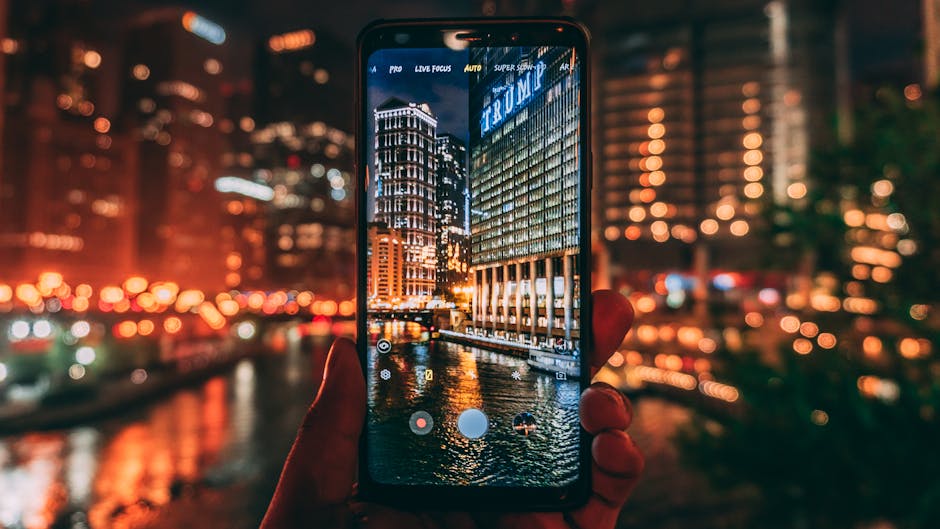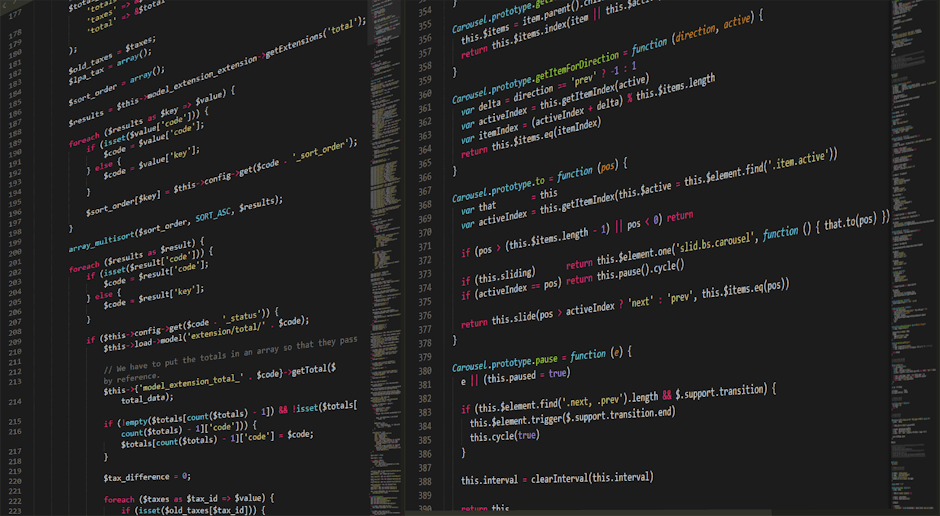
So, 2025 is here, and you’re probably, or maybe you are, looking around, thinking about new skills to pick up. And, like, mobile app development, that comes up a lot, right? People wonder, is it something you can just kinda learn, or is it, you know, really hard, like rocket science or something? This question, “is mobile app development easy to learn,” it’s one that gets asked a bunch, and it’s not really a simple yes or no thing to be honest with you. It’s got a lot of pieces to it, some bits are pretty straightforward, and then other bits, well, they can make your head spin a little, I guess. It really depends on a few things, like what you already know and how you like to learn things.
It’s definitely possible for people, like, normal people, to learn how to make apps, totally. But just because it’s possible doesn’t mean it’s going to be a walk in the park. Sometimes, people think coding is just like typing, but it’s more than that, it’s a way of thinking, really. You have to be okay with problems, big ones, and small ones, and just figuring things out as you go along. That’s a big part of it. A lot of folks, they start out super excited, which is great, but then they hit a wall, you know, when the code doesn’t do what they expect it to do, and that’s usually when the real learning begins, honestly.
It’s often considered to be a journey with many steps, a bit of a winding path, some would say. You start at one point, with maybe just a basic idea, and then you try to get to another point, where you have a working app that actually does stuff. The tools change, the ways people build things, they change too, pretty fast actually. So, it’s not like you just learn it once and then you’re done forever. You normally have to keep on learning new stuff, which can be, for some, a lot to keep up with. But for others, that’s the exciting part.
The First Steps: Getting Your Feet Wet, Sort Of
When you first decide to jump into mobile app development, the very first thing that usually happens is you look up some tutorials online. And there are, like, so many of them, it’s almost too many. You might pick one that says “Beginner Friendly” or “Learn in 7 Days” and think, “Okay, this is it!” Then you download some software, an Integrated Development Environment, or IDE, they call it. And you stare at it, wondering where to even click, honestly. It’s usually a bit overwhelming at the start, with all those buttons and windows.
You’ll start with simple things, like making a button appear on the screen, or making text change when you tap something. These little victories, they feel pretty good, they really do. But then, you want to make it do something a bit more complicated, and that’s when things normally get a little fuzzy. You’ll be copying code from examples, maybe not even understanding every line, which is totally normal, by the way. It’s a bit like learning a new language, you start with simple phrases before you can really hold a proper conversation, you know?
The initial setup, that part can be a hurdle for some people, it truly can. Getting all the right bits of software installed, making sure they all talk to each other correctly, sometimes that alone takes a lot of time. And if something goes wrong during that setup, finding out why can be a whole project in itself. But once you get past that, which is just part of the deal, the actual writing of code, it starts to make a little more sense. People usually begin to see patterns and how things are supposed to connect together, which is pretty neat.
Tools and Tech: A Bit of a Jumble
Alright, so you’ve got the basics down, maybe made a calculator app or something. Now, you realize there’s not just one way to build a mobile app, not at all. There are different paths you can go down, and each one has its own set of tools and what they call “programming languages.” If you want to make apps just for iPhones, Apple phones, you typically learn Swift, which is their specific language. And if you’re thinking about Android phones, which are, you know, everywhere, then you’re probably looking at Kotlin or Java. It is what they use, for the most part, you see.
But then, and this is where it gets a bit more involved, there are also things called “cross-platform frameworks.” These are tools that, in theory anyway, let you write code once, and then it can run on both iPhones and Androids. Sounds super efficient, right? Like Flutter or React Native, those are some of the popular ones. But then these have their own learning curves too. They’re not magically easier, just different. Sometimes they come with their own set of quirks, honestly. You have to pick one, which itself can be a big decision, especially early on.
It can be a bit of a maze, deciding which language or framework to put your time into. Each has its good points and its not-so-good points, and what’s popular now might change next year. So, keeping up with what’s “in” and what’s “out” can be a thing. If you’re in a place like Houston, maybe looking for people who already know all this app stuff, you might check out somewhere like Mobile app development Houston for pros who keep up with these sorts of things. Because, honestly, for a beginner, this part alone can feel like a lot to sort through.
Practice Makes…Well, Better
Learning to develop mobile apps isn’t like learning facts for a history test. You can’t just read a book or watch some videos and then suddenly be good at it. It just doesn’t work that way, normally. This whole thing is about doing, about building stuff, and about messing up, honestly. You’ll make apps that crash. A lot. Like, seriously, they will just stop working for no clear reason you can see at first. And then you have to figure out why, which is the really tricky part, sometimes.
Debugging, they call it, which is basically finding and fixing those annoying errors in your code. It’s considered to be a big chunk of app development, a really big chunk. Sometimes, you’ll spend hours, like, actual hours, looking for a tiny mistake, maybe a missing comma or a bracket in the wrong spot. And when you find it, it feels like winning a small lottery, it really does. This repeated process of trying, failing, fixing, and trying again, that’s where the actual learning truly happens, you know?
Starting with small, simple projects is typically a smart move. Don’t try to build the next big social media app on your first go. Start with a to-do list app, or a simple game, or even just something that displays information. Gradually, you can add more features and make it more complicated. Each new feature you try to build, it teaches you something new, something practical. That hands-on experience, it’s what makes the difference between just knowing about app development and actually being able to do it.
The Community and Other Helps
Nobody learns app development completely alone, not really. There’s a huge world of other people doing the same thing, and they’re often out there to help, which is nice. Online forums, like Stack Overflow, those are goldmines. When you’re stuck on a problem, chances are someone else has had the exact same problem before, and someone else has posted an answer. You just have to know how to phrase your question, you see, so others can understand what trouble you’re having.
There are also tons of online communities, like on Reddit or Discord, where people chat about coding stuff all the time. You can ask questions, share what you’re working on, and sometimes even find people to work with on little projects. These places, they can really speed up your learning, because you’re not just banging your head against a wall by yourself. Getting different ideas from others, that’s often super helpful, you know? It helps you see things in new ways.
And don’t forget about official documentation from Apple or Google, or from the framework creators. It can be a bit dense to read, not always the easiest stuff, but it’s the most accurate source of information. Sometimes, what you need is hidden in there, waiting for you to find it. People online, normally they’re pretty helpful, if you ask the right way, I mean. So, leaning on these resources, it’s not a sign of weakness; it’s just how people learn and get better at these kinds of skills.
What Happens After You Learn the Gist?
So, let’s say you’ve put in the time, built a few small apps, and you feel like you’ve got a decent handle on things. What then? Well, the cool thing about mobile app development is that there’s always more to learn. Technologies keep changing, new devices come out, and user expectations, they just keep getting higher. So, what you learned last year might need a little update or tweaking this year. It’s considered to be a never-ending journey, truly.
But with that basic skill set, you can start building bigger, more useful apps. Maybe you have an idea for something that could really help people, or just something fun. You could even start thinking about making a little money from your apps, if that’s something you’re interested in. Or, you could look for a job in the field, which many people do. Having a portfolio of apps you’ve built, even simple ones, is typically really important for that.
The path from beginner to someone who really knows their stuff can take a while, it really can. It’s not usually something that happens overnight, or even in a few months, for most people. But the satisfaction of seeing your code come to life on a phone, and knowing you built that thing yourself, it’s a pretty good feeling, honestly. It’s a skill that keeps giving back, as long as you keep putting in the effort to keep it current and sharp. It is quite rewarding, for many.
In the end, is mobile app development easy to learn? Not “easy” in the sense of no effort, no problems, or instant understanding. It’s more like, it’s learnable for almost anyone with patience, a willingness to figure things out, and a bit of persistence. You’ll hit walls, you’ll feel confused, and sometimes you’ll want to just throw your computer out the window. But then you’ll fix that bug, or get that feature working, and it’ll feel pretty great. So, jump in, give it a try, and just keep at it, because that’s really the secret sauce to the whole thing.
FAQs About Learning Mobile App Development
Q1: Do I need to be really good at math to learn mobile app development?
A1: Normally, no, you don’t need to be a math genius. Basic math helps for some logical stuff, but for most app development, it’s more about problem-solving and thinking things through logically, not complicated equations, really.
Q2: How long does it usually take to learn enough to build a basic app?
A2: It varies a lot, it totally does. Some people can get a simple app working in a few weeks or months, if they’re putting in consistent effort. But becoming good enough for complex apps or a job? That’s typically a much longer process, like many months or even a year or more, honestly.
Q3: Is it better to learn Android or iOS app development first?
A3: There isn’t really a “better” one to start with, it’s kind of up to you. Pick the one you’re more interested in, or the type of phone you use most, which often makes it a bit more fun and relatable as you’re learning things.
Q4: Can I learn mobile app development for free?
A4: Yeah, you totally can learn a lot for free. There are tons of free online tutorials, documentation, and communities. You don’t usually need to spend money to get started, which is pretty cool, if you ask me.
Q5: What’s the biggest challenge when learning mobile app development?
A5: For a lot of people, the biggest challenge is just staying motivated and dealing with all the errors and problems that pop up. It can be frustrating when code doesn’t work, so persistence is a huge thing you have to have.






